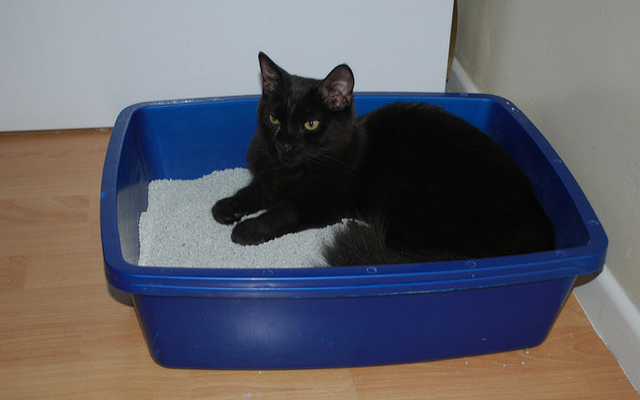A new development in cancer treatment is pointing researchers in an unexpected direction—toward the litter box. A study published by researchers at the Geisel School of Medicine at Dartmouth College in Hanover reports a parasite found in feline feces could be the future of cancer treatment.
Called T. gondii, the single-celled parasite is found in the intestines of warm-blooded animals as well as uncooked meat and contaminated drinking water. It’s not something you want to ingest, but scientific evidence shows that in the right circumstances, it has powerful anti-cancer properties.

Most people infected with the T. gondii parasite don’t experience any symptoms. Those with compromised immune systems, however, are at risk of contracting toxoplasmosis. In mild cases, toxoplasmosis causes flu-like symptoms and muscles aches. In severe cases, it can also lead to permanent damage in the brain, eyes, and other organs.
Doctors and researchers have typically seen T. gondii as an enemy worth defending against, but the team at Geisel School of Medicine have produced evidence showing the parasite isn’t all bad. It has to do with the immune system. They’ve uncovered that when the parasite enters the human body, it triggers a reaction from the cytotoxic T cells. While cancer cells work to shut down a person’s immune system, T. gondii helps get it started again.
Infecting people with a potentially dangerous parasite poses obvious complications, but researchers have found a safer way to introduce T. gondii to the body. They’ve created a mutant of the parasite called cps. Unlike the original, cps is unable to replicate. With this control in place, experts believe it’s a safe and effective cancer vaccination.
Dr. David J. Bzik with Dartmouth College said in Medical News Today,
“Aggressive cancers too often seem like fast moving train wrecks. Cps is the microscopic, but super strong, hero that catches the wayward trains, halts their progression and shrinks them until they disappear.”
The cps treatment has so far been tested on mice with aggressive cases of melanoma and ovarian cancer. In the study, the mice show a significantly higher rate of survival when injected with the cps vaccine. Scientists plan on continuing their research to better understand the parasite’s mechanisms before moving on to human testing.
The discovery could mean big changes in the future of cancer treatment, and we have cats to thank for that good news. Think about that the next time you dread cleaning out the litter box: somewhere in that mess could be the key to curing cancer.
Featured image source Flickr/Laura LaRose


